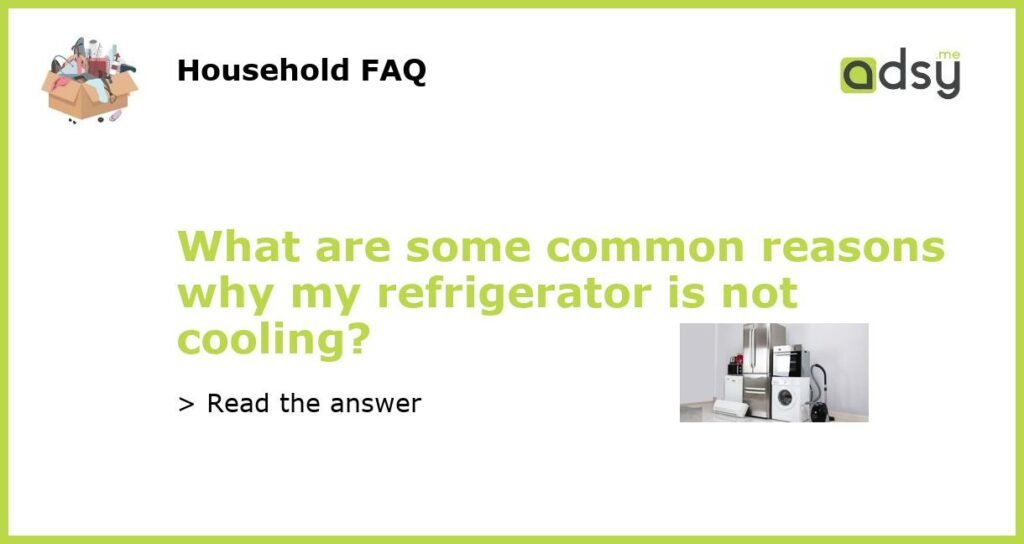Dirty Condenser Coils
One of the most common reasons why a refrigerator is not cooling properly is dirty condenser coils. The condenser coils are responsible for removing heat from inside the refrigerator and releasing it into the surrounding air. Over time, these coils can become caked with dust, dirt, and other debris, which reduces their ability to efficiently remove heat. As a result, the refrigerator may struggle to cool down, causing the temperature inside to rise.
Faulty Condenser Fan
Another potential reason for a refrigerator not cooling is a faulty condenser fan. The condenser fan plays a crucial role in circulating air over the condenser coils, helping to remove the heat generated during the cooling process. If the fan stops working or is not running at its full capacity, it can lead to poor cooling performance. This can be caused by a malfunctioning fan motor, a blocked fan blade, or other issues with the fan assembly.
Refrigerant Leak
A refrigerant leak can also result in inadequate cooling in a refrigerator. Refrigerant is a crucial component of the cooling system, responsible for absorbing and releasing heat to facilitate the cooling process. When there is a leak in the refrigerant lines, the system may not have enough refrigerant to adequately cool the appliance. This can cause the refrigerator temperature to rise and make it difficult for the fridge to maintain a cold temperature.
Malfunctioning Evaporator Fan
The evaporator fan is responsible for circulating air over the evaporator coils, which helps in the cooling process of the refrigerator. If the evaporator fan malfunctions, it can result in poor cooling performance and uneven distribution of cold air, leading to temperature imbalances within the fridge. This can cause some areas of the refrigerator to be colder than others, while others may not cool at all.
Temperature Control Issues
Temperature control issues can also contribute to a refrigerator not cooling properly. If the temperature control knob or panel is faulty or set at the wrong temperature, it can prevent the fridge from reaching and maintaining the desired cooling temperature. This can result in warm or fluctuating temperatures within the refrigerator compartment, making it ineffective in preserving food at the required temperature.

